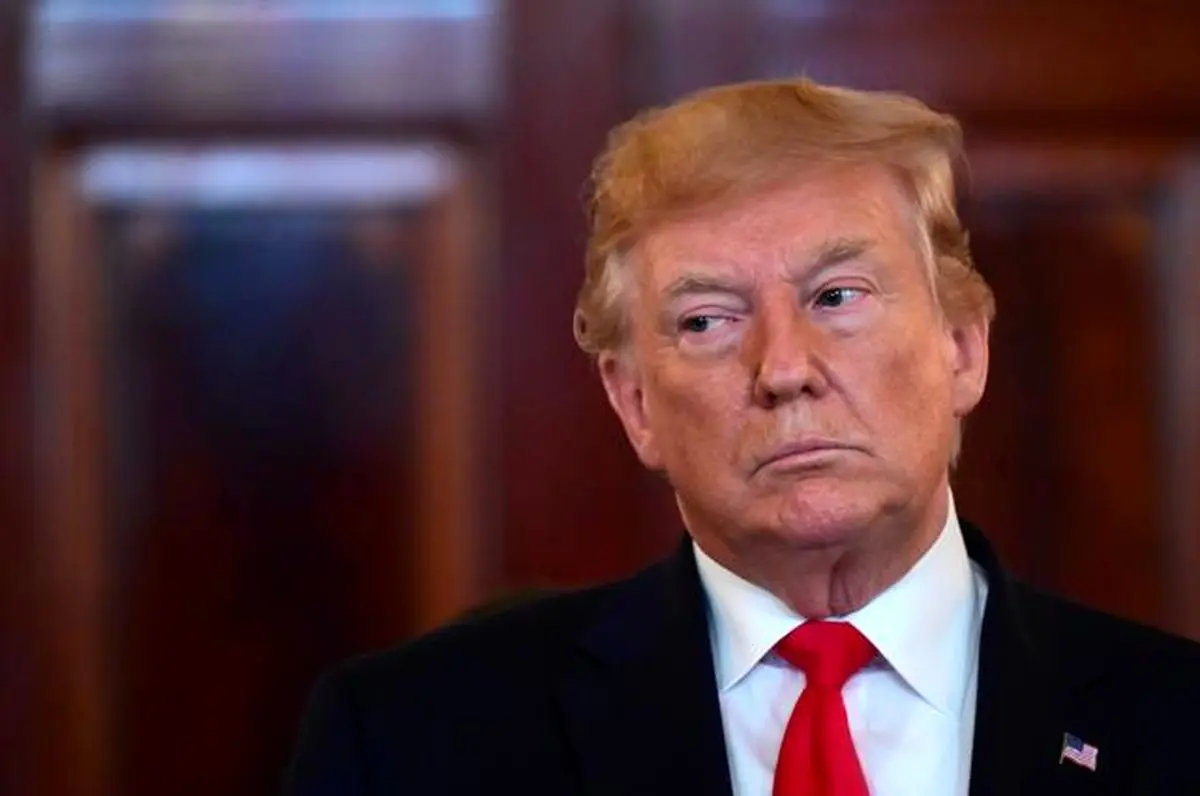White House refuses to participate in impeachment hearing

The White House said on Sunday that it would not participate in the first impeachment hearings before the House Judiciary Committee as Democrats prepared to approve a report making the case for President Donald Trump's removal from office.
The Democratic majority on the House Intelligence Committee says its report will speak for itself in laying out possible charges of bribery or "high crimes and misdemeanors," the constitutional standard for impeachment in the United States.
The Judiciary Committee prepares the actual charges after receiving the report.
That committee's first hearing is set for Wednesday and was expected to feature four legal experts to examine constitutional questions in relation to any articles of impeachment.
The White House was invited to attend the hearing, but its counsel declined in a fiery letter released on Sunday evening.
"This baseless and highly partisan inquiry violates all past historical precedent, basic due process rights, and fundamental fairness," said White House counsel Pat Cipollone, continuing the West Wing's attack on the procedural form of the impeachment proceedings.
The White House's decision was in response to the first of two crucial deadlines it faces in Congress this week.
The Judiciary Committee, considering charges known as articles of impeachment, had given Trump until 6pm (23:00 GMT) on Sunday to say whether he would dispatch a lawyer to take part in the judiciary panel's proceeding on Wednesday.
"We cannot fairly be expected to participate in a hearing while the witnesses are yet to be named and while it remains unclear whether the Judiciary Committee will afford the President a fair process through additional hearings," Cipollone wrote, according to a copy of the letter seen by Reuters.
He added that the White House would respond separately by a Friday deadline on whether Trump would mount a defence in further impeachment proceedings.
'Ridiculous' hearings
The Judiciary Committee's Democratic staff did not immediately reply to a request for comment on the White House's refusal to participate in the hearing, which would have been the first direct involvement by the Trump camp in a process the president has condemned as a partisan "witch hunt."
Congressional investigators have been looking into whether Trump abused his power by pressuring Ukraine to launch investigations of former Democratic Vice President Joe Biden, who is running to unseat him in the 2020 presidential election, and a discredited conspiracy theory that Ukraine, not Russia, interfered in the United States 2016 presidential election.
Hearings before the Judiciary Committee, which has responsibility for crafting any formal charges against Trump, are a major step towards possible charges.
Democratic House Speaker Nancy Pelosi, who will make the final decision, has not yet said whether the Republican president should be impeached. But in a letter to supporters last week, she called for him to be held accountable for his actions.
Trump has denied any wrongdoing.
Three investigating panels, led by the House Intelligence Committee, are due to release a formal report this week when legislators return on Tuesday after the Thanksgiving holiday. The report will outline evidence gathered by the Intelligence, Foreign Affairs and Oversight committees.
Members of the intelligence panel will review the report in a classified setting on Monday evening, and the full committee will consider and vote on it on Tuesday before forwarding it to the Judiciary Committee, according to an Intelligence Committee official and a person familiar with the matter.
Trump has previously suggested that he might be willing to offer written testimony under certain conditions, although aides suggested they did not anticipate Democrats would agree to them.
"The Democrats are holding the most ridiculous Impeachment hearings in history. Read the Transcripts, NOTHING was done or said wrong!" Trump tweeted Saturday.
The House Judiciary Committee could vote on whether to recommend articles of impeachment within the next two weeks, setting the stage for a possible impeachment vote by the full House before Christmas, according to Democratic aides.
If the House impeaches Trump, the Republican-controlled Senate would hold a trial to determine whether he should be removed from office. Senate Republicans have shown little appetite for removing the president.
END
